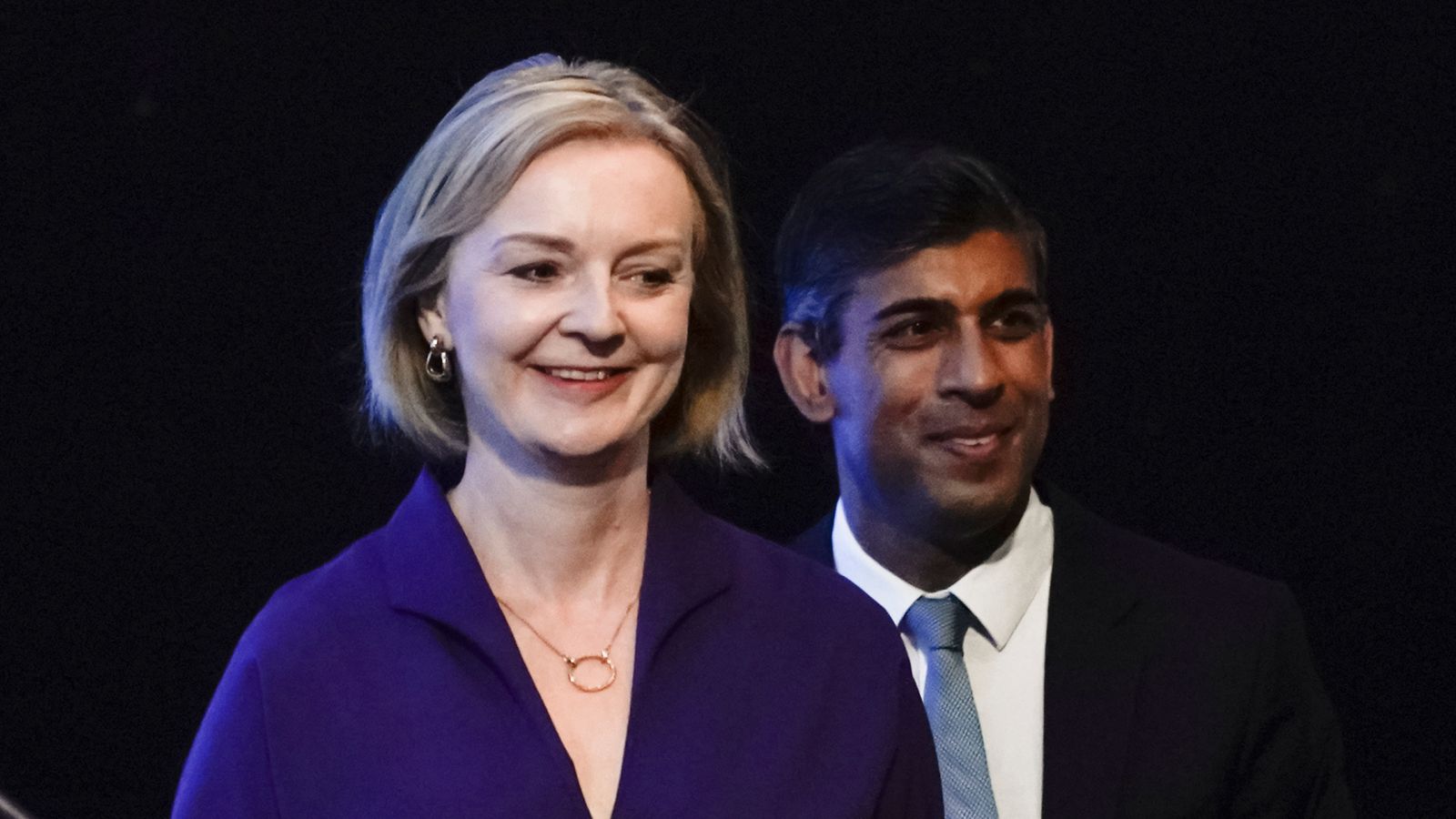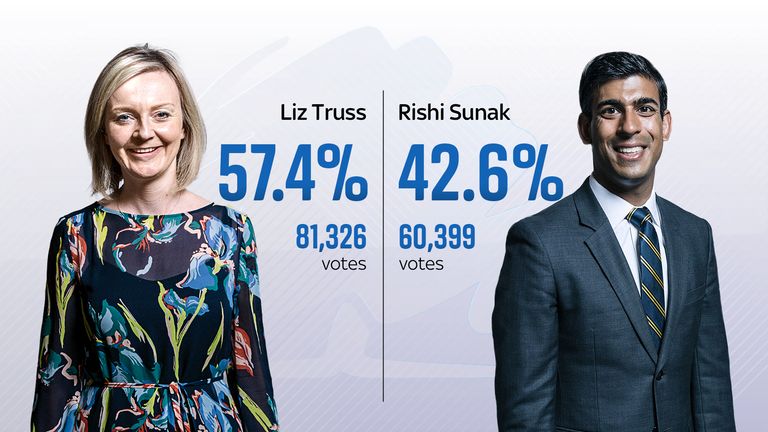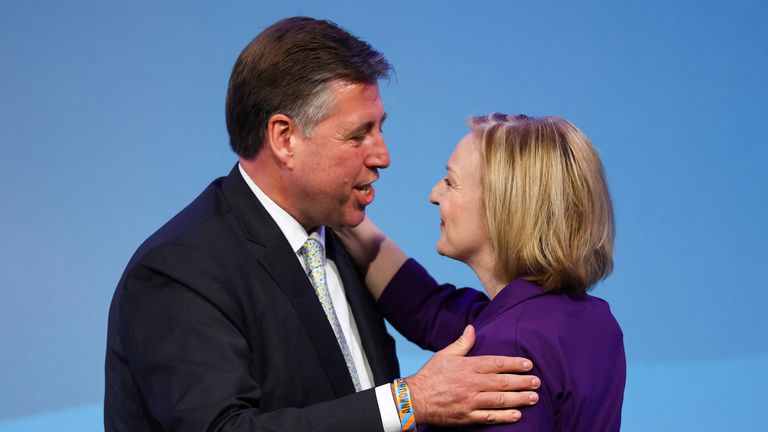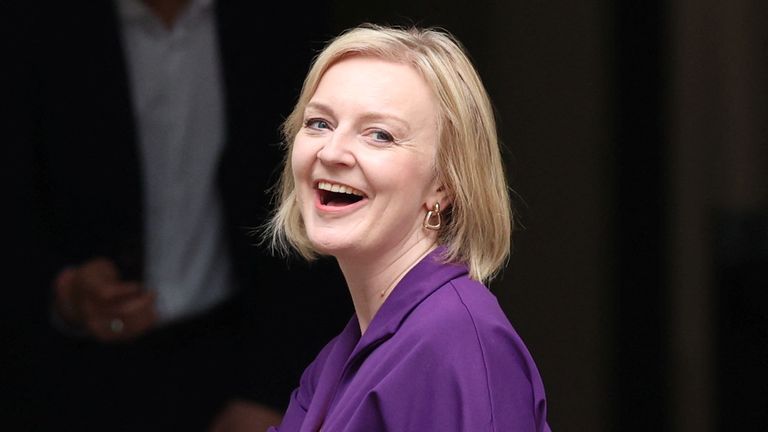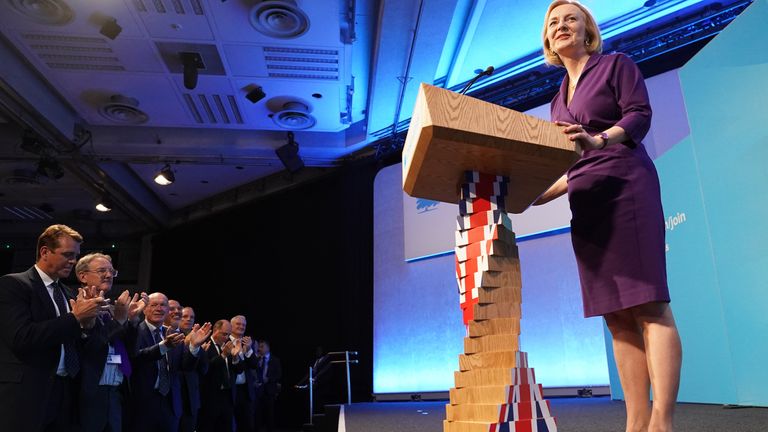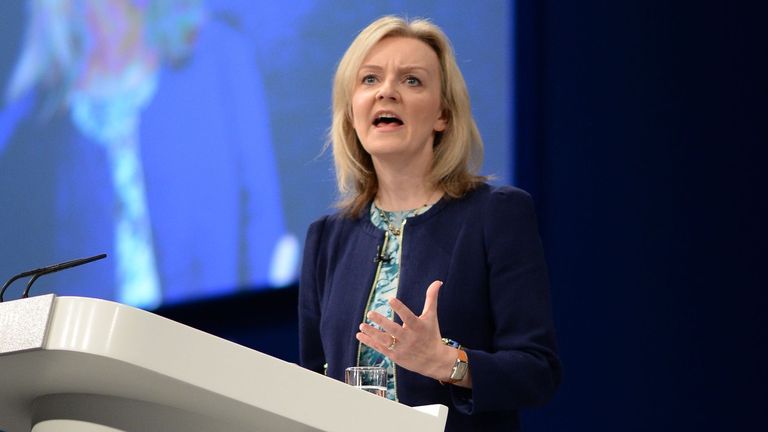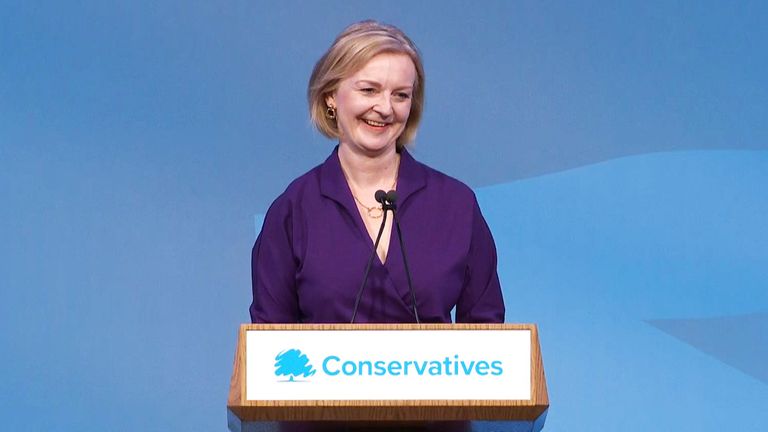Liz Truss will become the next prime minister after defeating Rishi Sunak in the Conservative Party leadership contest.
Ms Truss, who was the favourite to win, will succeed Boris Johnson on Tuesday and become the nation’s third female leader.
The foreign secretary used her victory speech to indicate she would not trigger an early general election, instead pledging to secure “a great victory for the Conservative Party in 2024”.
She won by a comfortable margin, but her victory was slimmer than in other recent leadership contests.
Ms Truss said it is an “honour to be elected” as she thanked her party for organising “one of the longest job interviews in history”.
In a short speech after the result was announced, she issued her thanks to her “friend” Mr Johnson.
“You got Brexit done. You crushed Jeremy Corbyn. You rolled out the vaccine and you stood up to Vladimir Putin,” she said.
Mr Johnson, who was forced to resign after a wave of ministers left his government over a series of controversies, will visit the Queen at Balmoral to formally tender his resignation tomorrow.
Reacting to Ms Truss’s victory, he said she “has the right plan to tackle the cost of living crisis, unite our party and continue the great work of uniting and levelling up our country”.
Mr Sunak, the former chancellor, has also called for the Conservative Party to unite behind Ms Truss after his loss.
In a tweet he said: “Thank you to everyone who voted for me in this campaign. I’ve said throughout that the Conservatives are one family.
“It’s right we now unite behind the new PM, Liz Truss, as she steers the country through difficult times.”
New PM announced – Politics Hub
Ms Truss did not enjoy the support of the majority of MPs during the parliamentary stage of the contest, with Mr Sunak coming out on top among fellow Tories.
As well as dealing with a daunting set of social and economic challenges and the ongoing war in Ukraine, Ms Truss will have to reunite a party that has spent weeks indulging in blue-on-blue infighting.
‘I will deliver’
In her victory speech, Ms Truss reiterated her promise to “deliver a bold plan” to cut taxes and grow the economy.
“I will deliver on the energy crisis dealing with people’s energy bills, but also dealing with the long term issues we have on energy supply,” she said.
She said Tory beliefs in freedom, low taxes and personal responsibility “resonate with the British people”.
“During this leadership campaign, I campaigned as a conservative and I will govern as a conservative,” she said.
Ms Truss has vowed to outline a plan to deal with the energy crisis within her first week as PM – though she has not gone into detail on what this might look like.
Allies say she will go “bigger than expected” and there is mounting speculation that she could freeze the energy price cap.
Reacting to her victory, Labour leader Sir Keir Starmer said she “needs to show that she actually understands and can meet the challenges that are there after 12 years of failure of this Tory government”.
Nicola Sturgeon, the Scottish first minister, also called on her to “freeze energy bills for people and businesses, deliver more cash support, and increase funding for public services”.
Sir Ed Davey, the leader of the Liberal Democrats, called for a general election, saying: “Under Liz Truss, we’re set to see more of the same crisis and chaos as under Boris Johnson.”
Mr Sunak and Ms Truss were whittled down to the final two candidates after five rounds of voting by Tory MPs.
The pair went head-to-head over a summer of hustings and live television debates, during which they clashed repeatedly over their plans for the economy.
Read more:
Who is Liz Truss? The prime minister who sees herself as disruptor-in-chief
Who will be in Truss’s top team? Predictions for her cabinet
How will Truss do to ease cost of living crisis?
Party members had from 1 August to 2 September to cast their votes, which were counted over the weekend.
Ms Truss will officially become prime minister tomorrow, when she will travel to Balmoral to meet the Queen, who will invite her to form a government.
She will then return to Downing Street, where she is expected to make her first speech as prime minister and begin forming her cabinet.
